| 15526284055 | causes of immigration | Forces in the United States driving this process were (1) political and religious freedom, (2) economic opportunities in the western U.S. and cities, (3) large steamships offered relatively inexpensive transportation. (p. 361) |  | 0 |
| 15526284056 | old immigrants | Through the 1880s, they came to the United States from northern and western Europe. They were mostly Protestant and had a high-level of literacy. (p. 361) |  | 1 |
| 15526284057 | new immigrants | From the 1890s to 1914, they came to the United States from southern and eastern Europe. Mostly non-Protestant, poor and illiterate. (p. 361) |  | 2 |
| 15526284109 | Statue of Liberty | Began in the 1870's, by the French sculptor Frederic-Auguste Bartholdi. It opened in New York Harbor, in 1886. (p. 362) |  | 3 |
| 15526284110 | Chinese Exclusion Act of 1882 | It was the first bill regarding immigration. It placed a ban on all new immigrants from China. (p. 362) |  | 4 |
| 15526284058 | Immigration Act of 1882 | In 1882, this act placed restrictions on the immigration of undesirable persons, such as paupers, criminals, convicts, and mentally incompetent. (p. 362) |  | 5 |
| 15526284059 | Contract Labor Act of 1885 | Restricted the immigration of temporary workers, to protect American workers. (p. 362) |  | 6 |
| 15526284060 | American Protective Association | A nativist society that was prejudiced against Roman Catholics. (p. 362) |  | 7 |
| 15526284111 | Ellis Island 1892 | An immigration center opened in 1892 in New York Harbor. (p. 362) |  | 8 |
| 15526284061 | melting pot vs. cultural diversity | The historian's term, melting pot, refers to immigrants leaving their old-world characteristics and adopting the United States characteristics. Other historians argue that first-generation immigrants maintained their cultural identity and only the second and third generations were assimilated in the U.S. society. (p. 373) |  | 9 |
| 15526284062 | cause of migration | In the late 1800s, forces driving Europeans to migrate to the United States were (1) Displaced farmworkers by political turmoil and mechanization, (2) Overcrowding due to population boom, (3) Religious persecution. (p. 361) |  | 10 |
| 15526284063 | streetcar cities | In these cities, people lived in residences many miles from their jobs and commuted to work by horse-drawn streetcars. (p. 363) |  | 11 |
| 15526284064 | steel-framed buildings | Skyscrapers were made possible by this type of building. The first, was the Home Insurance Company Building in Chicago. It was made possible by a steel skeleton, Otis elevator, and central steam heating system. (p. 363) |  | 12 |
| 15526284065 | tenements, poverty | As rich people left residences near the business district, the buildings were often divided into small crowded windowless apartments for the poor. (p. 363) |  | 13 |
| 15526284066 | ethnic neighborhoods | Different immigrant groups created distinct neighborhoods where they could maintain their distinct identity. (p. 363) |  | 14 |
| 15526284067 | residential suburbs | By 1900, suburbs had grown up around every major U.S. city. the United States became the world's first suburban nation. (p. 364) |  | 15 |
| 15526284112 | political machines, boss | Political parties in major cities came under the control of tightly organized groups of politicians, known as political machines. Each machine had its boss, the top politician who gave orders and doled out government jobs. (p. 364) |  | 16 |
| 15526284068 | Tammany Hall | A political machine in New York City, which developed into a power center. (p. 364) |  | 17 |
| 15526284069 | urban reformers | Urban reformers stated more than 400 settlement houses in the cities. They provided services to help poor immigrants. (p. 365) |  | 18 |
| 15526284070 | City Beautiful movement | In the 1890s, this movement included plans to remake America's cities with tree-lined boulevards, public parks, and public cultural attractions. (p. 364) |  | 19 |
| 15526284113 | Henry George | A San Francisco journalist who authored "Progress and Poverty" in 1879 that called to attention the failings of laissez-faire capitalism along with the wealth polarization caused by industrialization. (p. 365) |  | 20 |
| 15526284114 | Edward Bellamy | In 1888, he wrote "Looking Backward", a popular book of social criticism that that envisioned a future that had eliminated poverty, greed, and crime. (p. 365) |  | 21 |
| 15526284071 | Jane Addams | In 1889, she started Hull House in Chicago, which was a settlement house which provide help to immigrants. (p. 365) |  | 22 |
| 15526284072 | settlement houses | They provide social services to new immigrants. (p. 365) |  | 23 |
| 15526284073 | Social Gospel | In the 1880s and 1890s this movement espoused social justice for the poor based on Christian principles. (p. 365) |  | 24 |
| 15526284115 | Walter Rauschenbusch | The leading figure of the Social Gospel movement, and a New York City minister. (p. 365) |  | 25 |
| 15526284074 | Cardinal Gibbons | A Roman Catholic leader who supported organized labor. (p. 366) |  | 26 |
| 15526284116 | Dwight Moody | He founded Moody Bible Institute, in 1889. It helped generations of urban evangelists to adapt traditional Christianity to city life. (p. 366) |  | 27 |
| 15526284117 | Salvation Army | Imported from England in 1879, this charity provided the basic necessities of life for the homeless and the poor while also preaching Christian Gospel. (p. 366) |  | 28 |
| 15526284075 | family size; divorce | Family size continued to drop as more people moved from the farms to the cities. Children were needed to do work on farms, but in the city they did not provide that advantage. Divorce rates increased as the legal grounds for divorce became more lenient. (p. 366) | 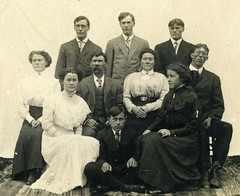 | 29 |
| 15526284076 | Susan B. Anthony, NAWSA | In 1890, one of the founders of the National American Womens Suffrage Association (NAWSA), which worked to secure voting rights for women. (p. 366) |  | 30 |
| 15526284077 | Francis Willard, WCTU | Leader of the Women's Christian Temperance Union (WCTU) which advocated total abstinence from alcohol. (p. 367) |  | 31 |
| 15526284078 | Antisaloon League | In 1893, this organization became a powerful political force and by 1916 had persuaded twenty one states to close down all saloons and bars. (p. 367) |  | 32 |
| 15526284079 | Carrie Nation | She raided saloons and smashed barrels of beer with a hatchet. (p. 367) |  | 33 |
| 15526284080 | kindergarten | In the late 1800s, the practice of sending children to kindergarten became popular. (p. 367) |  | 34 |
| 15526284081 | public high school | In the late 1800s, there was growing support for tax-supported public high schools. (p. 367) |  | 35 |
| 15526284082 | college elective system | In the late 1800s, colleges started reducing the number of required courses and offered more elective courses. These were courses students could choose, and this increased the number of foreign language and science courses. (p. 368) |  | 36 |
| 15526284083 | Johns Hopkins University | This university was founded in Baltimore in 1876, the first to specialize in advanced graduate studies. (p. 368) |  | 37 |
| 15526284084 | new social sciences | New fields such as psychology, sociology, anthropology, and political science emerged. (p 368) |  | 38 |
| 15526284085 | Richard T. Ely | He attacked laissez-faire economic thought as dogmatic and outdated and used economics to study labor unions and trusts. (p. 368) |  | 39 |
| 15526284118 | Oliver Wendell Holmes | He taught that law should evolve with the times and not be bound by previous precedents or decisions. (p. 368) |  | 40 |
| 15526284119 | Clarence Darrow | A famous lawyer, he argued that criminal behavior could be caused by an environment of poverty, neglect, and abuse. (p. 368) |  | 41 |
| 15526284086 | W.E.B. Du Bois | A leading black intellectual, he advocated for equality for blacks, integrated schools, and equal access to higher education. (p. 368) |  | 42 |
| 15526284087 | realism, naturalism | Mark Twain became the first realist author and his books often showed the greed, violence, and racism in American society. Authors known for their naturalism focused in how emotions and experience shaped human experience. (p. 369) |  | 43 |
| 15526284120 | Mark Twain | The first great realist author, he is famous for his classic "The Adventures of Huckleberry Finn". (p. 369) |  | 44 |
| 15526284121 | Stephen Crane | He wrote in the 1890s about the human condition. His books included "Maggie: A Girl in the Streets" and the "Red Badge of Courage". (p. 369) |  | 45 |
| 15526284122 | Jack London | He wrote about the conflict between man and nature in books such as "The Call of the Wild". (p. 369) |  | 46 |
| 15526284123 | Theodore Dreiser | The author of "Sister Carrie". Notable for its naturalism and controversy, as it ran contrary to the moral undercurrents of 1900. (p. 369) | 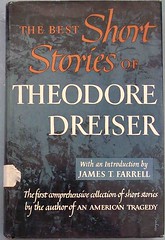 | 47 |
| 15526284124 | Winslow Homer | The foremost American painter of seascapes and watercolors. (p. 369) |  | 48 |
| 15526284125 | Thomas Eakins | Specialized in the painting of the working class and used serial-action photographs to study human anatomy. (p. 369) |  | 49 |
| 15526284088 | Impressionism | A painting technique that originating in France. (p. 370) | 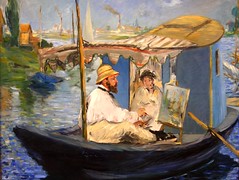 | 50 |
| 15526284126 | James Whistler | An American expat, he painted Arrangement in Grey and Black, popularly known as Whistler's Mother. It was a quintessential example of his study of color rather than subject. (p. 370) |  | 51 |
| 15526284127 | Mary Cassatt | An American impressionist painter known as a portrait painter. She spent much of her life in France. (p. 370) |  | 52 |
| 15526284089 | Ashcan School | Around 1900, they painted scenes of everyday life in poor urban neighborhoods. (p. 370) |  | 53 |
| 15526284090 | Armory Show | A New York painting exhibit in 1913 that featured abstract paintings. (p. 370) |  | 54 |
| 15526284091 | abstract art | Non-representational art, not accepted by Americans until the 1950s. (p. 370) |  | 55 |
| 15526284128 | Henry Hobson Richardson | His architectural designs of the 1870s, based on the Romanesque style, gave a gravity and stateliness to functional commercial buildings. (p. 370) |  | 56 |
| 15526284092 | Romanesque style | This architecture style featured massive stone walls and rounded arches. (p. 370) |  | 57 |
| 15526284129 | Louis Sullivan | He rejected historical architecture and focused on tall, steel-framed office buildings. He focused on building a form that followed function. A member of the Chicago School. (p. 370) |  | 58 |
| 15526284093 | form follows function | The form of the building flowed from its function. (p. 370) |  | 59 |
| 15526284130 | Frank Lloyd Wright | The most famous architect of the 20th century, he developed an organic style that made his buildings fit in with their natural surroundings. (p. 370) |  | 60 |
| 15526284094 | organic architecture | An architectural style in which the building was in harmony with its natural surroundings. (p. 370) |  | 61 |
| 15526284095 | Frederick Law Olmsted | The originator of landscape architecture, he designed Central Park and grounds of the U.S. Capitol. (p. 371) |  | 62 |
| 15526284096 | growth of leisure time | The growth of leisure time activities was a result of the reduction of work hours, improved transportation, advertizing, and the decline of restrictive values. (p. 371) |  | 63 |
| 15526284131 | John Philip Sousa | He wrote a series of popular marches played in small town bandstands across the country. (p. 371) |  | 64 |
| 15526284132 | jazz, blues, ragtime | A form of music that combined African rhythms and western-style instruments and mixed improvisation with a structured band format. (p. 371) |  | 65 |
| 15526284097 | Jelly Roll Morton | A famous African American jazz musician from New Orleans. (p. 371) |  | 66 |
| 15526284133 | Scott Joplin | A black composer notable for his contribution to ragtime. He sold over one million copies of his song "Maple Leaf Rag". (p 371) |  | 67 |
| 15526284098 | mass circulation newspapers | Large circulation newspapers had been around since 1830, but the first to exceed one million subscribers was Joseph Pulitzer's New York World. (p. 371) |  | 68 |
| 15526284134 | Joseph Pulitzer | He established the first newspaper to exceed over one million in circulation by filling it with sensational stories of crime and disaster. (p. 317) |  | 69 |
| 15526284135 | William Randolph Hearst | A newspaper publisher whose introduction of large headlines and sensational reporting changed American journalism. (p. 371) |  | 70 |
| 15526284099 | Ladies Home Journal | By the 1880s, advertising and new printing technology lead to this magazine which sold for only 10 cents. (p. 371) |  | 71 |
| 15526284100 | circus trains | The national rail network made possible traveling circuses. (p. 371) | 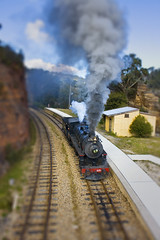 | 72 |
| 15526284101 | Barnum & Bailey, Greatest Show on Earth | A traveling circus that was very popular. (p. 371) |  | 73 |
| 15526284102 | Buffalo Bill Wild West Show | William F. Cody brought this show to urban populations. (p. 372) |  | 74 |
| 15526284103 | spectator sports, boxing, baseball | In the late 19th century professional sports started. (p.372) |  | 75 |
| 15526284104 | amateur sports, bicycling, tennis | These were late 19th century sports of the middle and upper classes. (p. 372) | 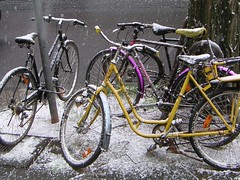 | 76 |
| 15526284105 | social class and discrimination | In the late 19th century, sports such as golf and tennis became popular with wealth members of athletic clubs. The very rich pursued polo and yachting. (p. 372) | 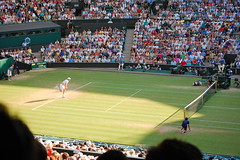 | 77 |
| 15526284106 | country clubs, golf, polo, yachts | These were late 19th century sports of the wealthy. (p. 372) |  | 78 |
| 15526284107 | corner saloon, pool halls | In the late 19th century, young single men often centered their lives around these establishments. (p. 372) |  | 79 |















































































